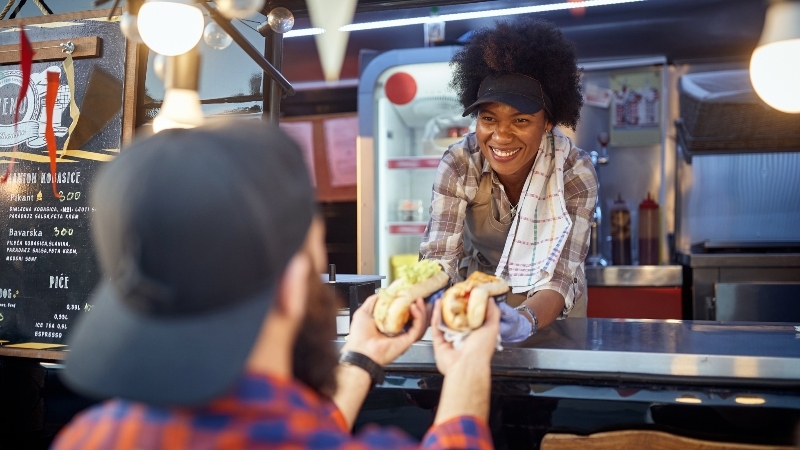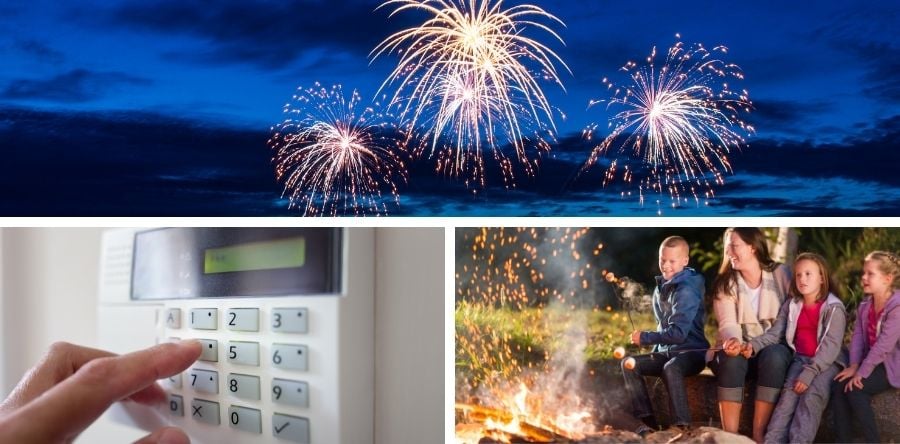
What will your post-COVID July 4th look like this year? Grilling burgers and steaks in the backyard? Roasting marshmallows around the campfire in the woods? Setting off fireworks? Or maybe all three!
Fire safety is key to a fun and memorable Fourth of July celebration, so I don’t want you to be a fire statistic. Safe Kids Worldwide reports more than 3,000 children under the age of 15 are sent to the emergency room each year in the U.S. because of fireworks injuries. The National Fire Prevention Association (NFPA) says grills and BBQs cause an average of 10,600 home fires, and as many as 90 percent of wildfires are caused by people.
To ensure your family’s safety and protection of property, let me share advice and recommendations for an enjoyable celebration.
Fireworks and the Fourth
It should come as no surprise that more than one-quarter (28 percent) of fires started by fireworks were reported on the Fourth of July, according to the NFPA. Burns accounted for 44 percent of the fireworks-related injuries seen in the month around July 4th. An estimated 19,500 fires started by fireworks were reported in 2018.
The most basic of backyard fireworks are the sparklers. Kids love the brief mini display of multi-colored sparks they hold in their hands. But did you know that the sparks can be anywhere from 1800°F to 3000° Fahrenheit? Keeping that in mind, precautions for at-home fireworks are necessary for both children and adults.
- Supervise children closely if they are holding sparklers. Never let kids light them or any other firework. Teach them to keep sparklers away from their faces, clothes, and hair, and only use them outdoors in open spaces. (To be honest, my preference is to give children glowsticks instead of sparklers and let the adults use the real thing.)
- Adults who light fireworks should always wear eye protection.
- Light only one firework at a time.
- No one should ever have any part of their body over the fireworks.
- Never throw or point fireworks at other people, animals or structures.
- Never shoot fireworks in metal or glass containers.
- Never relight a dud firework. Douse and soak them with water and throw them away.
- Always keep a pail of water or hose nearby.
And this must be said: People will do dumb things with fireworks. You might be better off going to a community display and leave lighting fireworks to the professionals.
Steaks and Marshmallows
The aroma of a steak on a grill and sugar rush from s’mores over the fire pit are great, but not if they catch fire and spread. Grills and campfires are the leading cause of fires in the summer, especially around the Fourth of July. Stats from the NFPA and U.S. Department of Interior drive that home.
- Grills and BBQs cause an average of 10 civilian deaths and $149 million in property damage.
- Greater than 80 percent of campfire-related pediatric injuries were caused by day-old campfires.
- A lot of human-caused wildfires that annually ravage millions of acres result from campfires left unattended, the burning of debris and negligently discarded cigarettes.
When you’re using grills, always have a fire extinguisher close by and keep grills away from the outside walls and decks of your home or apartment. If grilling with coals, make sure the coals are cooled, watered down and disposed of after use. If grilling with gas, keep your face away from the unit when lighting either automatically or with a lighter. Be sure that the canisters are turned off after use.
Ring ‘Round the Campfire
There’s more to a campfire than stacking sticks and striking a match. The U.S. Forest Service outlines the basics of campfires.
- Use an existing fire ring, don’t create a new one. When not in a designated campground, build your fire within a ring of rocks.
- Clear all vegetation away from the fire ring (needles, leaves, sticks, etc.)
- Select an open level spot away from trees, logs, stumps, overhanging branches, dense dry grass, and forest litter.
- Keep your campfire small.
- Keep plenty of water and a shovel nearby for throwing dirt on the fire if it gets out of control.
- Never leave a campfire unattended! Even a small breeze could quickly cause the fire to spread.
- Make sure a responsible adult is always in attendance.
When putting out your campfire:
- First, drown the campfire with water!
- Mix the ashes and embers with soil. Scrape all partially burned sticks and logs to make sure all the hot embers are off them.
- Stir the embers after they are covered with water and make sure that everything is wet.
- Feel the coals, embers, and any partially burned wood with your hands. Everything (including the rock fire ring) should be cool to the touch. Feel under the rocks to make sure there are no embers underneath. Remember…if it is too hot to touch, it is too hot to leave.
- When you think you are done, take an extra minute and add more water.
- Finally, check the entire campsite for possible sparks or embers because it only takes one to start a forest fire.
Follow the Rules
While permits for recreational campfires are not required, local governments can set more stringent regulations about backyard recreational fires. For example, they might restrict recreational fires on air quality alert days and restrict times of the day when they are allowed. Or the National Weather Service may issue a Red Flag Warning indicating that conditions are ideal for wildland fire combustion and rapid spread.
State fire codes set minimum requirements for outdoor recreational fires and portable fireplaces which include being constantly attended. Treated lumber materials, construction debris, garbage, plastic materials, or waste materials are not allowed to be burned in recreational fires.
One last thought about fires this summer. Minnesota is experiencing drought conditions due to lack of rain and hot weather which has put crucial focus on outdoor burning. The DNR and local governments in some counties have put recreational fire and burning regulations in place. I’d advise you make a call to your local fire department or city hall to check out any restrictions.
Meanwhile, Back at the Office
Now that we’ve covered the outdoor safety aspects of July 4th safety, let’s take a quick look at the security inside the office. As I’ve talked about in other blogs on card access, there are dates that need special attention when it comes to access security, such as Christmas and July 4th. They are tricky dates that are always the same date, but “float” over the days of the week.
This year, July 4th is on Sunday and many offices will be closed on Friday and/or Monday. Chances are, there will be schedule changes with staff because of the holiday. Confirm that your access codes are current and relevant for who should have access to your buildings. Make sure that you have people scheduled as emergency contacts during the long holiday weekend.
And there you have it. The first major holiday after the confines and restrictions of COVID promises to be a great weekend. Stay safe and enjoy the time with family, friends and neighbors in the great Minnesota outdoors. Happy 245th Birthday, America!
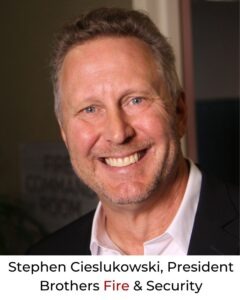 About Brothers Fire & Security
About Brothers Fire & Security
As one of the premier providers of fire and security solutions in the Upper Midwest, Brothers Fire & Security strives to build long-term, value-added relationships. We work with business owners and property management companies, as well as all types of public institutions to solve fire and security needs. By taking advantage of our integrated bundled services, many of our clients find that they can save 25-30% on their safety services, annual inspections and more. From a single location to franchises throughout the region and the country, our integrated approach saves our clients valuable time, money, and stress. We provide fire protection systems, security systems, fire sprinkler systems, fire alarm systems, 24-7 monitoring, fire extinguishers, card access and kitchen hoods. We also provide our Online Academy: Life Safety — Made Simple with eLearning courses designed to help you get and keep your staff trained and your business fire and security code compliant.
Subscribe to our blog!
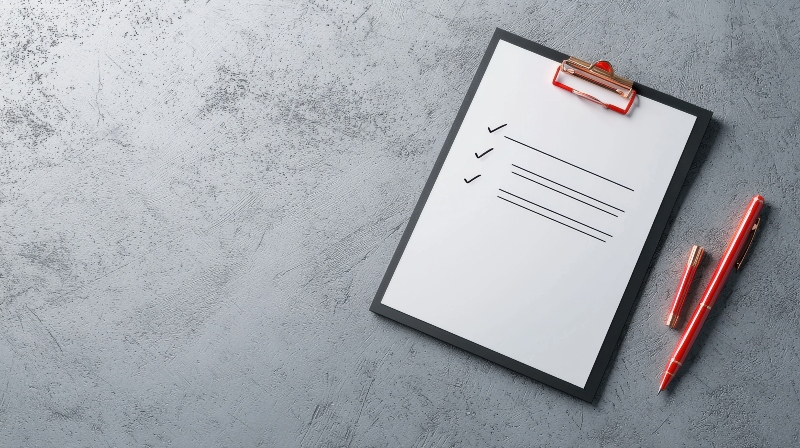
Making the Switch: Vendor Transition Guide
Switching fire and security vendors feels risky. Even if your current provider isn't meeting your needs, the thought of transitioning systems and...
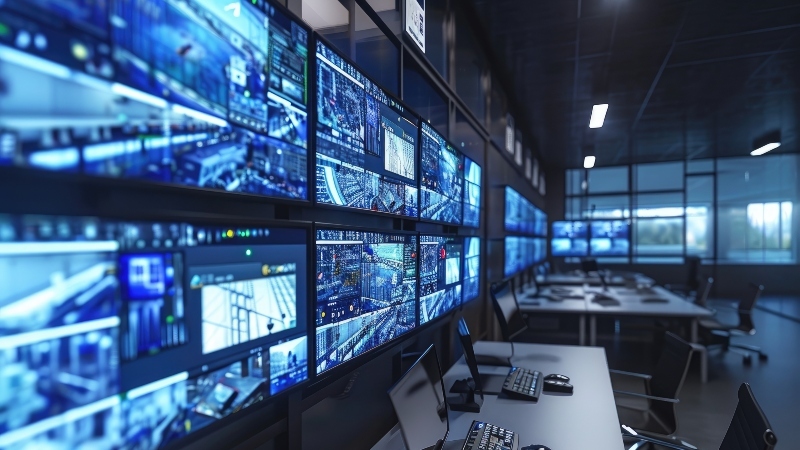
What to Do When Your Security Vendor Goes Silent
Your fire alarm shows a trouble signal. Last week's sprinkler inspection never happened, and despite three calls and multiple messages, your vendor...
















